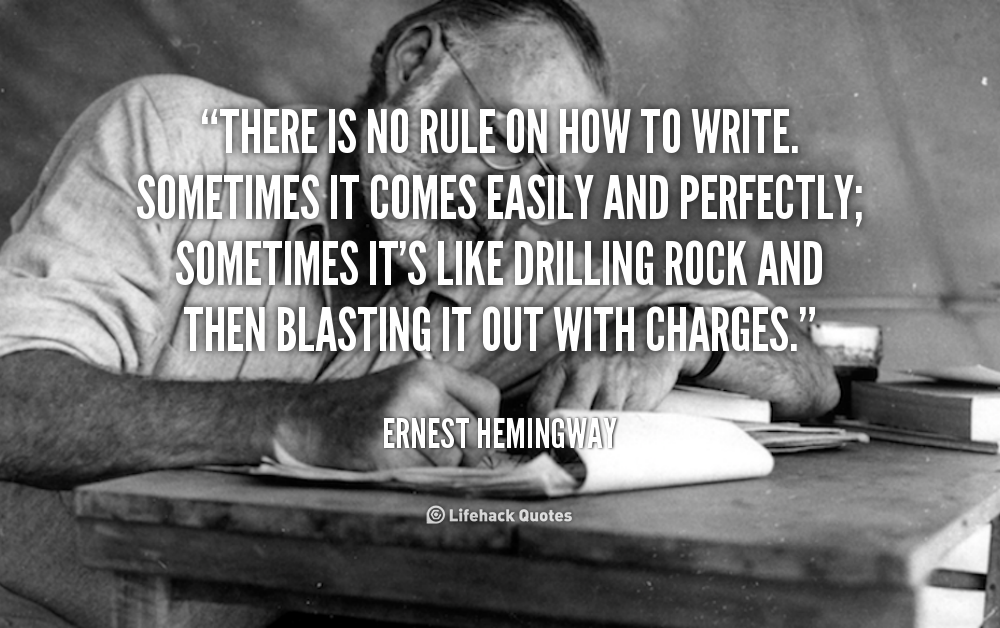I know you are all deep into writing just about everything these days: theses, essays, reports, cover letters, and resumes. And I know that when you’re switching rhetorical gears, it’s easy to focus on formatting requirements and forget the bottom line: every good piece of writing basically tells a good story.
But don’t just take it from me. I mean, I am just a talking pencil. Let’s see what the experts have to say about the practice of writing, particularly the experts who work in the genre of entertaining prose: of fiction. I get it, I get it, not all of you are out there writing a Governor General Award-winning novel. But all good writing tells a good story, regardless of whether it is a research essay or lab report, and I think we will all agree that these folks know how to tell a good story.
Being a good storyteller, though, isn’t about loading up your sentences with poetry and other rhetorical flourishes. For example, did you know that The Old Man and the Sea, one of Ernest Hemingway’s most famous novels, has about a 4th-grade reading level? Or that the legendary, shortest “novel†ever to be written, consisting of six words, is often attributed to this master of concise writing? The novel reads: “For sale: baby shoes, never worn.†Pretty amazing stuff, right? A classic example of where less is definitely more.
Let’s hear from a few other famous writerly folk for their advice on good writing:
Stephen King’s “Top 20 Rules for Writersâ€
“[Y]ou can’t forget that the opening line is important to the writer, [not just the reader]. To the person who’s actually boots-on-the-ground. Because it’s not just the reader’s way in, it’s the writer’s way in also, and you’ve got to find a doorway that fits us both.†(Stephen King)
- Read, read, read. â€If you don’t have time to read, you don’t have the time (or the tools) to write.â€
- Write one word at a time. “Whether it’s a vignette of a single page or an epic trilogy like ‘The Lord of the Rings,’ the work is always accomplished one word at a time.â€
- Stick to your own style. “One cannot imitate a writer’s approach to a particular genre, no matter how simple what that writer is doing may seem.â€
Zadie Smith’s “10 Rules of Writingâ€
- Leave a decent space of time between writing something and editing it.
- Work on a computer that is disconnected from the Âinternet.
- Protect the time and space in which you write. Keep everybody away from it, even the people who are most important to you.
Pretty basic stuff, right? And maybe not exactly glamorous. Good writing and good stories are often the results of small but significant things: a single word, an hour of each day for quiet reading … a tech-free work space. But don’t despair. Take baby steps, my friends, and one day, you will be ready to run with the wolves, or write with the best of them!
G. Graphite
